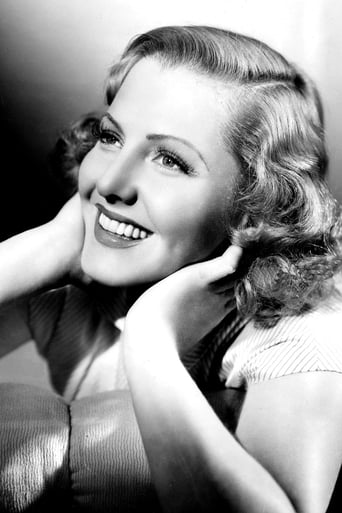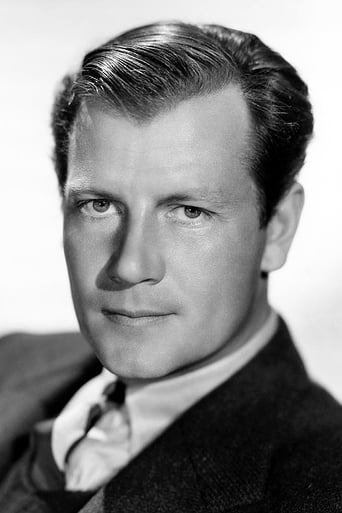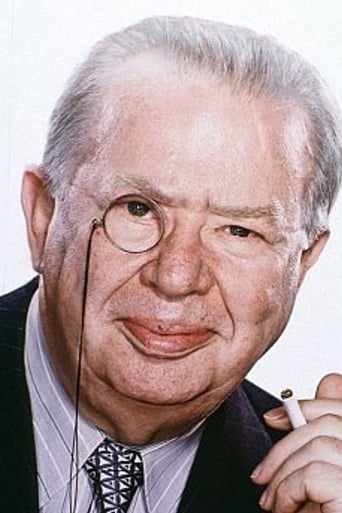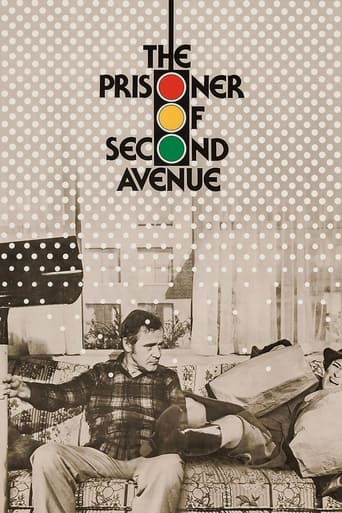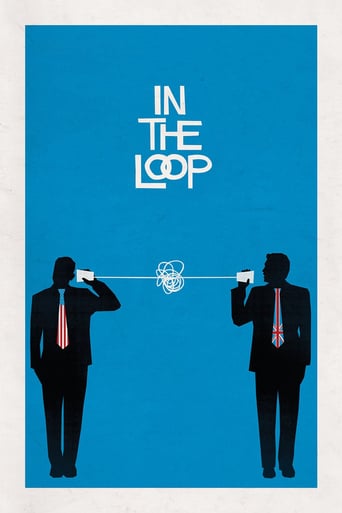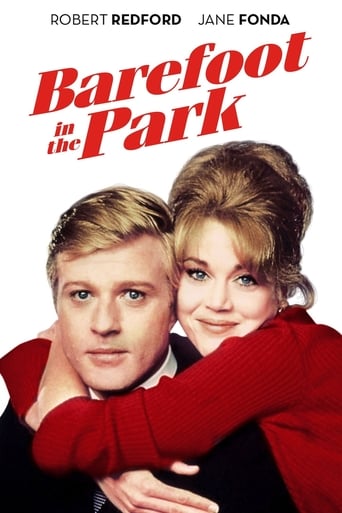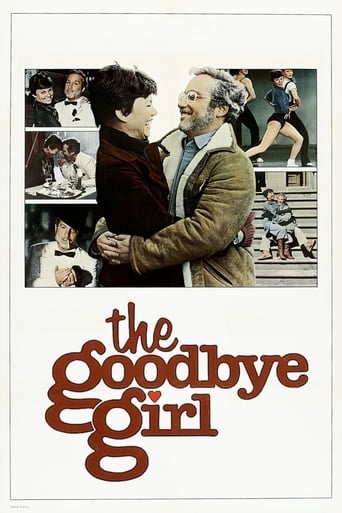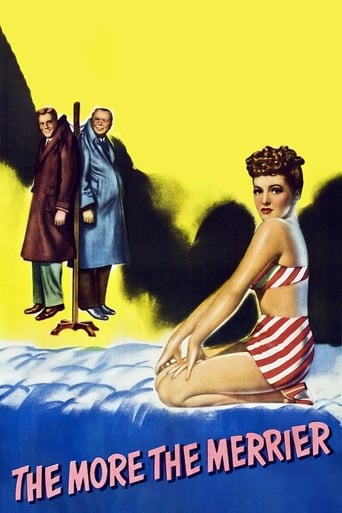
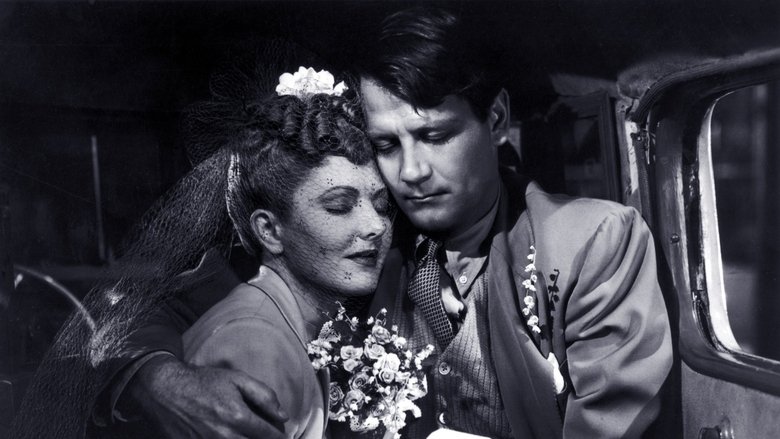
The More the Merrier (1943)
It's World War II and there is a severe housing shortage everywhere - especially in Washington, D.C. where Connie Milligan rents an apartment. Believing it to be her patriotic duty, Connie offers to sublet half of her apartment, fully expecting a suitable female tenent. What she gets instead is mischievous, middle-aged Benjamin Dingle. Dingle talks her into subletting to him and then promptly sublets half of his half to young, irreverent Joe Carter - creating a situation tailor-made for comedy and romance.
Watch Trailer
Cast
Similar titles
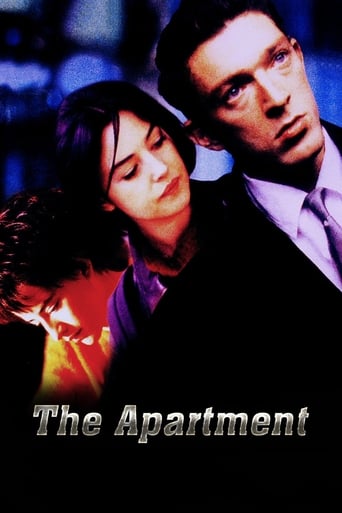
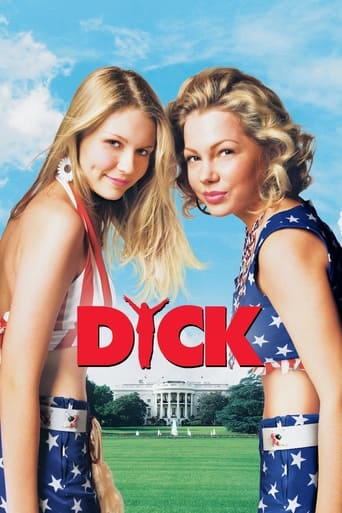


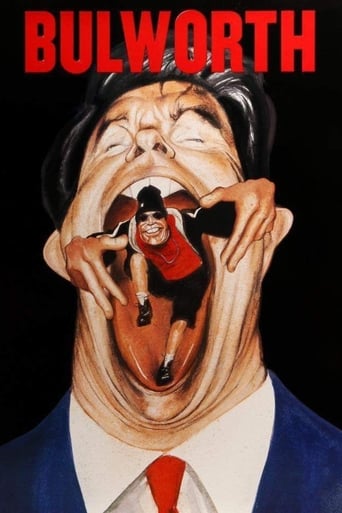
Reviews
Pretty Good
As Good As It Gets
Absolutely Fantastic
The acting in this movie is really good.
The film is pretty funny. I really like the old man. I can't imagine living in that era where vacancies are so hard to find, and women flirt with a man without any shame, trying so hard to get his attention. That was 1943, and how about now? Are men getting fewer and fewer? Btw, I think Jean Arthur's voice is so similar to Alicia Silverstone in Clueless. So cute, sweet and funny.
This superior romantic comedy features Charles Coburn and Joel McCrea as short-stay transients in wartime Washington, D.C., looking for a place to bed down for about a week. Jean Arthur is a working resident looking for a roommate to help pay the rent , while doing a bit to relieve the severe housing shortage in the nation's capital, due to the influx of people to work in the offices and plants relating to the war. Joan put an ad in the paper, but failed to specify that she was looking for a female. Hence, she was shocked when Coburn showed up, having tricked the many other hopefuls into believing the position was taken. At first, Jean was adamant that she would not tolerate a man as a roommate, even an old grandfatherly-looking one. But Coburn blustered and bullied his way in to her spare room. He would soon get an earful of her mandatory wakeup routine, from 7 to 7.30, each morning. One of the comedic highlights of the film has Coburn trying to conform to her schedule......While Jean is at work, Coburn takes it upon himself to sublet half of his room to another street wander: McCrea. Some humor results from McCrea getting used to his new abode. Again, Jean is shocked that she has an additional male roommate, even if only for perhaps a week......In the morning, Coburn talks to a committee about the need for new housing, even if just temporary. Later, Coburn finds and reads the last part of Jean's diary, especially, her first impressions of McCrea. When she catches him reading, she goes through the roof, then goes to her room, and cries. She orders them to leave by morning. Coburn has a pre-arranged hotel room, so he's not too disturbed, but McCrea has only another 2 days before he leaves for Africa. Thus, she relents and allows him to stay those days. Well, as you can guess, romance eventually enters the picture. But there's a problem: Jean is engaged to a Mr. Pendergast. See the film to find out how things turn out......The most fun part of the film is the first part, where Coburn and Jean much interact. But, the last part isn't excessively dull. only in comparison....See it on YouTube
I recommend dakota_linda ("Delightful if not quite perfect", dakota_linda from United States, 14 June 2009) and denscul ("A really funny 'war' movie about the housing shortage in Washington", denscul from virginia, 21 January 2007). Both writers express their praise for "The More the Merrier" (TMM) very well.TMM has disappointing story holes. It also has embarrassing racism to Japanese. It isn't first-rate screwball comedy. It has some exceptional ideas, but is dated. TMM comes from an era of movie making where audiences were familiar with screwball comedy conventions; so many shortcuts are taken that confuse us today. An example from the end is the reputation-killing gossip columnist who the other characters believe will do them harm. The modern audience doesn't understand how powerful a gossip columnist was back then, so the characters' desperate response is perplexing.The principal three members of the cast play their parts very well. Cockburn wins the Oscar, but Joel McCrea is even better to me. Jean Arthur also plays the indecisive Connie Milligan exceptionally well. Her character loses control in the last two scenes; certainly she's crying too much for a modern audience to find agreeable.I like how McCrea's Joe Carter is introduced. He's literally carrying a propeller after Coburn's Benjamin Dingle is repeating the "Damn the Torpedoes" mantra. McCrea is introduced to us as the stationary male. In the final scene that dog is loose. That's a beautiful transition, and a little singing makes the ending memorable.The silly sequence where Connie and Joe first meet is one of the film's strengths. The late-game love talk between Joe and Connie (who are separated by a wall) is exquisite. The derogatory references to Japanese are all painful to endure. The FBI involvement is completely naive to a modern audience. All suggestions about government representatives sincerely trying to enact policy on behalf of the public interest is ludicrous today."The More the Merrier" is never laugh-out-loud funny, but is worthwhile despite plot twists that are not conceivable today. It would have been great to have been alive in 1943. Those people lived in a blessed time without realizing it.
I only came across this movie recently as it was shown on TMC. What a treat! I had not seen any Jean Arthur pictures before - I have to say, she was one lovely lady. I won't repeat the plot details, but just comment that the sidewalk and kiss scene was fabulous. You know that Joe (McRae) and Connie (Arthur)are destined to kiss, but the buildup goes on and on.All the while, Connie is warding off the octopus treatment from Joe, without really wanting to, and pretending to be nonchalant and detached. And when the kisses come, they take her breath away. Certainly among the great screen kisses.One point I don't think anyone else commented on: When Connie first mentions her then-fiancé Charles J. Pendergast, she says offhandedly that he has no hair, is bald. But when we see Pendergast a little later on, and for the rest of the movie, he is wearing a blatantly ill-fitting and mis-tinted toupee. In the restaurant scene, Pendergast makes a point of ducking under some ventilation fans; no doubt to keep his hair on straight. No one says anything, but you know why he did it.
